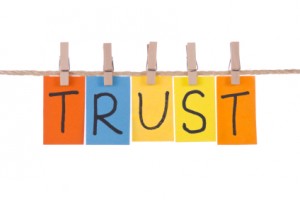 If you provide service as part of your value, the first opportunity you have to learn about your customer’s needs is to ask one very simple question, “How May I Help You?”. These five words will enable you to define the pain and opportunity. Carefully listening to the response opens the door for how you can provide the greatest value, how you might actually help!
If you provide service as part of your value, the first opportunity you have to learn about your customer’s needs is to ask one very simple question, “How May I Help You?”. These five words will enable you to define the pain and opportunity. Carefully listening to the response opens the door for how you can provide the greatest value, how you might actually help!
Asking someone how you can help them may be viewed as a conversation opener. It does provide a moment to engage. Engagement is critical in moving a target to a potential buyer or consumer of your goods and services. What better way to get the dialogue started by asking how you might fulfill a request or need.
Asking someone how you can help them is different than using professional etiquette to ask, “How are you today?”. Though this is a nice sentiment, it doesn’t require you to stop and listen. In fact, most people use this as a long form hello or welcome. Many will respond with a trite and unemotional “good”, when in fact it may not be how they are at all. It limits your engagement.
The better way to open up a dialogue with a potential customer is to ask how to help them. It requires you to pay attention. It means you have to participate in a conversation that will have to use your perception skills, your listening skills and your problem solving skills. A much higher demand upon your brain than a rehearsed canned response of “good”.
A person skilled in the art of providing outstanding service will anticipate the potential requests that will ensue from the question of how you can help. The proposition of providing outstanding service also demands that the response demonstrates how you plan to deliver the help or better qualify the type of help that will best serve the customer’s needs.
Expectations of your engagement will be defined when you ask how you can help someone. It is up to you then to determine how you can deliver that help or point them in the right direction. The first impression is set by your willingness to open the door, invite someone in and learn of their requirements.
Here are some easy ways to remember how to create the greatest value of HELP:
H = HOW the person defines their need when you ask how you can help them. It is your opportunity to determine HOW you can be the best in serving them when you ask the question.
E = EXPECTATIONS are set when a person is asked how you can help them. Knowing exactly what is expected gives you the opportunity to WOW them with your determination to provide outstanding service.
L = LISTEN carefully when you ask someone how you can help them, as they will assume you will hear and understand their needs. Your first response will be their first impression of how good you will be in helping them resolve their problem or attain their goal.
P = PREPARE to deliver when you ask how to help. Every request may be unique; however, you have standard services that will fit the needs with or without some customization. Know your responses and the value that you will provide in helping them.
Most important, when asking someone how you can help them, is to respond with honesty. If you cannot help, tell the person you are not able to help. It is a measure of your integrity. If you can extend yourself by giving them a referral to others that can help or pointing them to another resource, you will be a better service provider. Your value to help does not require you to actually provide the help, only yield to a pathway to gets the person to where they can get the help they need. Then you are truly a great service provider.
Service to others is the rent you pay for your room here on earth. ~Mohammed Ali
By Jamie Glass, CMO & President of Artful Thinkers and Managing Director of Sales & Marketing Practice at CKS Advisors.


You must be logged in to post a comment.